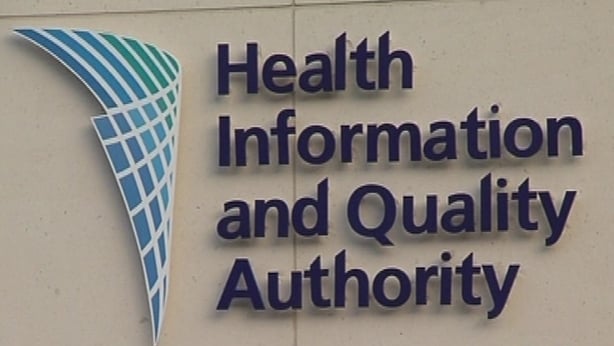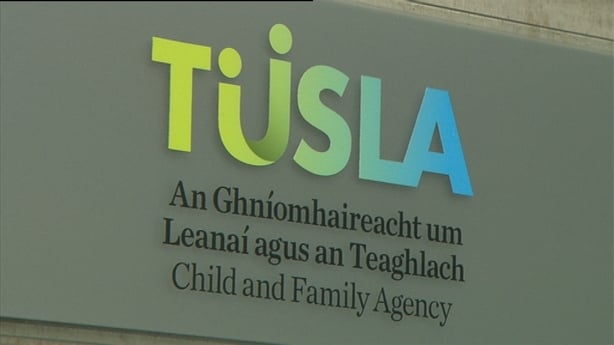The lack of appropriate alternative placements for children in care requires a national strategic approach, according to the Health Information and Quality Authority.
Notifications from Tusla to the independent watchdog about designated centres for special care as well as non-regulated children's services rose last year.
There was also a rise in unsolicited information - from children, their family members or advocates, health and social care professionals, employees and the general public - regarding children’s social care services.
Alternative care services
Inspections of children’s services by HIQA last year - including residential and foster care services - found that providers faced "significant and increasing challenges" in making sure service capacity was sufficient to maintain existing levels of provision.
They also faced challenges in planning for and meeting the diverse needs of children entering care.
Shortages of placements were evident in all regions and in parts of the alternative care sector, which resulted in some children being placed a long distance away from their families and communities.
Inspectors found greater use of unregulated 'special emergency accommodation’ by Tusla, not only for unaccompanied children but also for older children with complex and additional needs.
"Increasing numbers of children referred to residential care were assessed as having emotional and behavioural difficulties linked to their earlier adverse childhood experiences," HIQA said.
This required "careful management" in relation to matching considerations and the need for continual upskilling of the workforce according to the report.
While inspectors found Tusla’s new collective risk management approach (in residential care centres) was "largely effective" in determining the suitability of placements, it said learning and development programmes needed to be strengthened in response to the younger age profile and the complexity of needs of children being admitted to residential care.
A lack of specialist foster care provision led to more children being placed in residential care given the limited number of viable alternatives according to HIQA.
There were also few options to help younger children move out of residential care to a family setting prior to young people reaching the age of 18.
"Such pressures and gaps in service provision meant that not all children in the care of the State were able to experience family life as a basic human right," HIQA said.
It also found that a small number of Tusla’s residential care services were still provided in locations and buildings that were not homely or fit for purpose, and time frames for relocation had taken longer than had been anticipated.
While most inspections of children’s residential centres were found to be adequately staffed, HIQA said that centre managers shared their growing concerns that there is "increased use and reliance on agency staff".
Read more: Children in care report 'deeply concerning' - Taoiseach

Statutory children's residential centres
Last year, HIQA conducted six announced inspections of the role and accountabilities of Tusla’s social workers for children in residential care.
The process reviewed how children in both statutory and non-statutory residential placements were supported by their social worker.
The six service areas together had a total of 152 children placed in residential care.
Only 31 of these children were placed in Tusla’s directly managed provision.
A total of 101 children were placed outside their service area, and 23 children were aged 12 years or younger.
It was notable according to the report that in one service area; 26 children were placed with non-statutory providers in 24 different service settings.
HIQA has said the inspections reflected "the growing challenge regionally and nationally in recruiting and retaining designated children-in-care social workers".
The report noted that children placed in residential care often have complex needs and require a high level of individualised care and therapeutic support.
"Increasingly, children were placed in residential care at a much younger age, from five years of age and sometimes at a long distance from their homes and communities," HIQA said.
Many children had already experienced foster care or previous residential care placement breakdowns.
For these reasons, HIQA said it was essential that all children had a named social worker that they
saw regularly, who they could talk to about the things that mattered most to them, and who helped them to be actively involved in developing and reviewing their care plan.
We need your consent to load this rte-player contentWe use rte-player to manage extra content that can set cookies on your device and collect data about your activity. Please review their details and accept them to load the content.Manage Preferences
Tusla’s Strategic Plan for Residential Care Services for Children and Young People 2022-2025 has provided a clear direction to help reduce its reliance on non-statutory providers - focusing on areas where there is limited or no local provision to meet ongoing levels of demand according to HIQA.
However it has stated that Tusla has remained "highly reliant on its use of non-statutory residential providers".
"It will also need to further strengthen links with fostering services and promptly implement its plans for a multidisciplinary approach to fostering to reduce the need for younger children to be placed in residential care and to expand opportunities for them to experience family life," HIQA said.
Given the increase in the number of younger children availing of statutory residential services, HIQA inspectors found that Tusla’s current policies and procedures for its residential care services, issued in 2021, did not effectively support staff in addressing the developmental needs and behaviours of younger children availing of residential care including respite care.
HIQA’s inspections also indicated that Tusla, as the provider of residential services, needed to enhance workforce skills in response to the increasing diversity of its residential care provision.
Regulated children's services (special care units)
Some 238 notifications were received by HIQA from Tusla relating to designated special care units - up from 161 notifications in 2021.
Special care is where a child is detained in a secure unit. Education is on-site and there is specialised input such as psychology services.
The majority of notifications received in 2022 were 'monitoring notifications’.
These primarily related to absconsions, allegations of abuse and times when children were injured and required medical attention.
There were 168 monitoring notifications in 2022, up from 100 notifications in 2021.
Non-regulated children’s services
Notifications of serious incidents involving children who are known to Tusla’s child protection and welfare services, including the deaths of children in care, are submitted to HIQA by Tusla within three working days of the death or serious incident happening.
In 2022, HIQA received 44 notifications (up from 30 in 2021).
Of these, 19 related to serious incidents (an increase of 16 on 2021 figures) and 25 related to the deaths of children in care or deaths of children or young adults known or previously known to the child protection and welfare service (down from 27 in 2021) .

Unsolicited information (information of concern or compliments about services)
During 2022, HIQAs Chief Inspector received 84 pieces of unsolicited information related to children’s social care services - less than other services monitored by the independent watchdog.
However, it was a 6% increase received in 2021.
Some 41 (49%) related to child protection and welfare services, 28 (33%) related to foster care services, nine (11%) related to special care units, four (5%) related to children’s residential centres and two related to Oberstown Children Detention Campus.
Three separate referrals were made to Tusla in line with the Children First Act 2015 on foot of the receipt of unsolicited information that contained unreported child safeguarding concerns.
Inspections of the Child Protection Notification System
The CPNS is a secure database and contains a national record of all children who have reached the threshold of being at ongoing risk of significant harm and for whom there is an ongoing child protection concern.
The absence of available placements to meet the needs of children listed on the CPNS was identified by HIQA in two service areas.
Improvements were also required in the effectiveness of the risk management systems in addressing the areas ability to meet those children’s needs.
In one area, the absence of placements posed a significant risk to the service.
While this risk was appropriately escalated, the escalation of risk did not provide for provision of necessary alternative care to children.
Despite supports being provided to those children to keep them safe at the time of the inspection, there remained "a long-term risk to their development and safety".
In another area, delays in access to suitable alternative care placements in the area had resulted in the needs of a child with complex needs not being met.
Overall, HIQA found that while the majority of children on the CPNS were provided with a safe service, it expressed concern that "a small number of children were delayed in coming into care due
to the lack of appropriate alternative care placements".
While these children were being closely monitored, HIQA has said that it is essential Tusla has "the necessary resources to ensure that they are in a position to effectively discharge their statutory duty to take children into care when this is necessary".
The report has noted that "filling vacant posts remained a challenge" and this impacted on the area’s ability to provide a timely response to new referrals including completing preliminary enquiries and initial
assessments in the time frame set out by Tusla.
Suggested improvements by children
When children and young people were asked about what improvements they would like to see, their responses reflected findings of a number of non-compliances by HIQA in the services inspected according to the report.
These included:
- Stability and consistency in social work allocation.
- Improved awareness and support to facilitate them to celebrate their cultural heritage and practice their
preferred religion.
- A strengthening of children and young people’s awareness of how to make a complaint if they felt unhappy with any aspect of the service they were receiving.
- Improvement in aftercare planning for young people.
- Improved physical location of a residential setting and the physical condition of one secure setting.
- And onward placement planning especially for young people in secure care.







